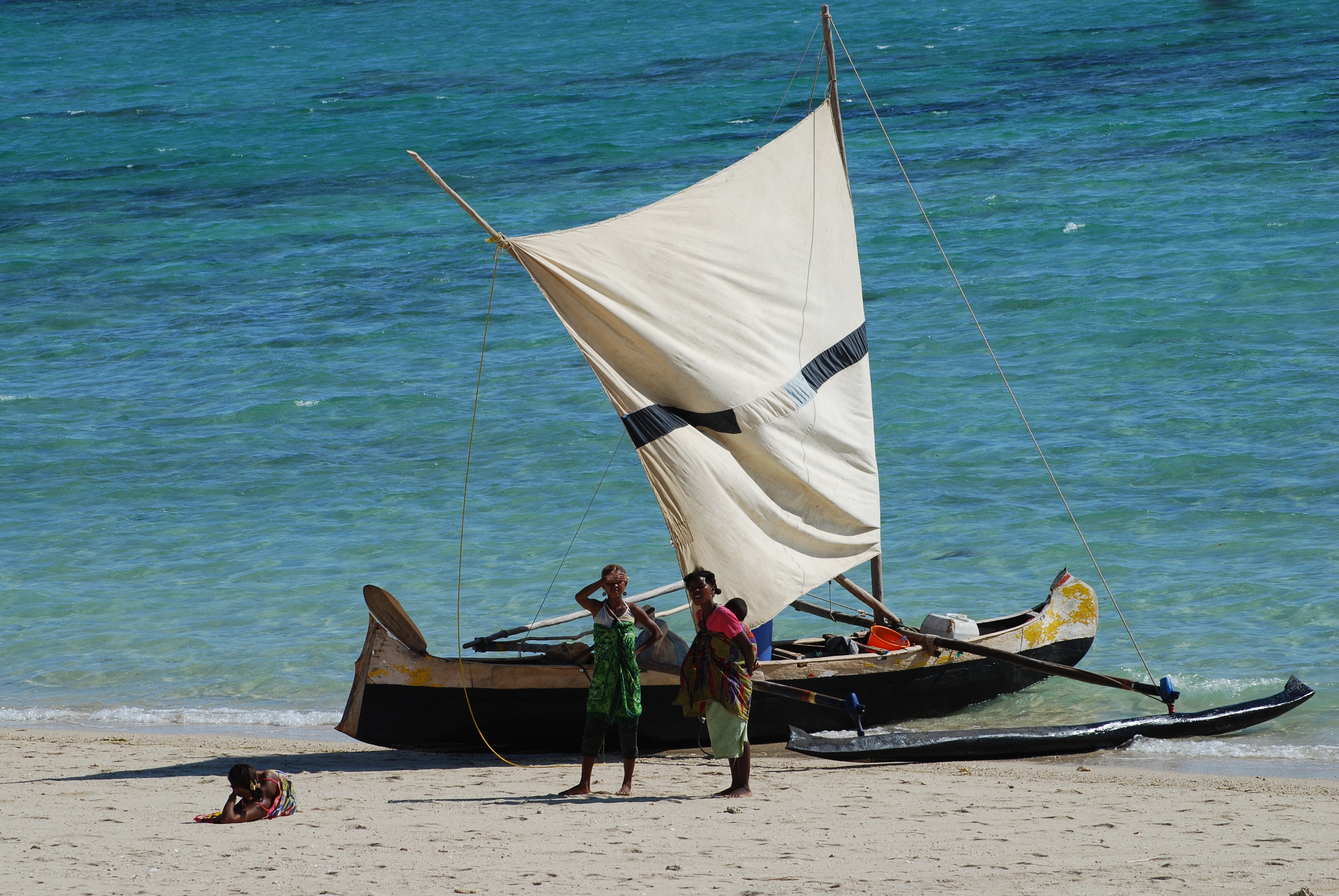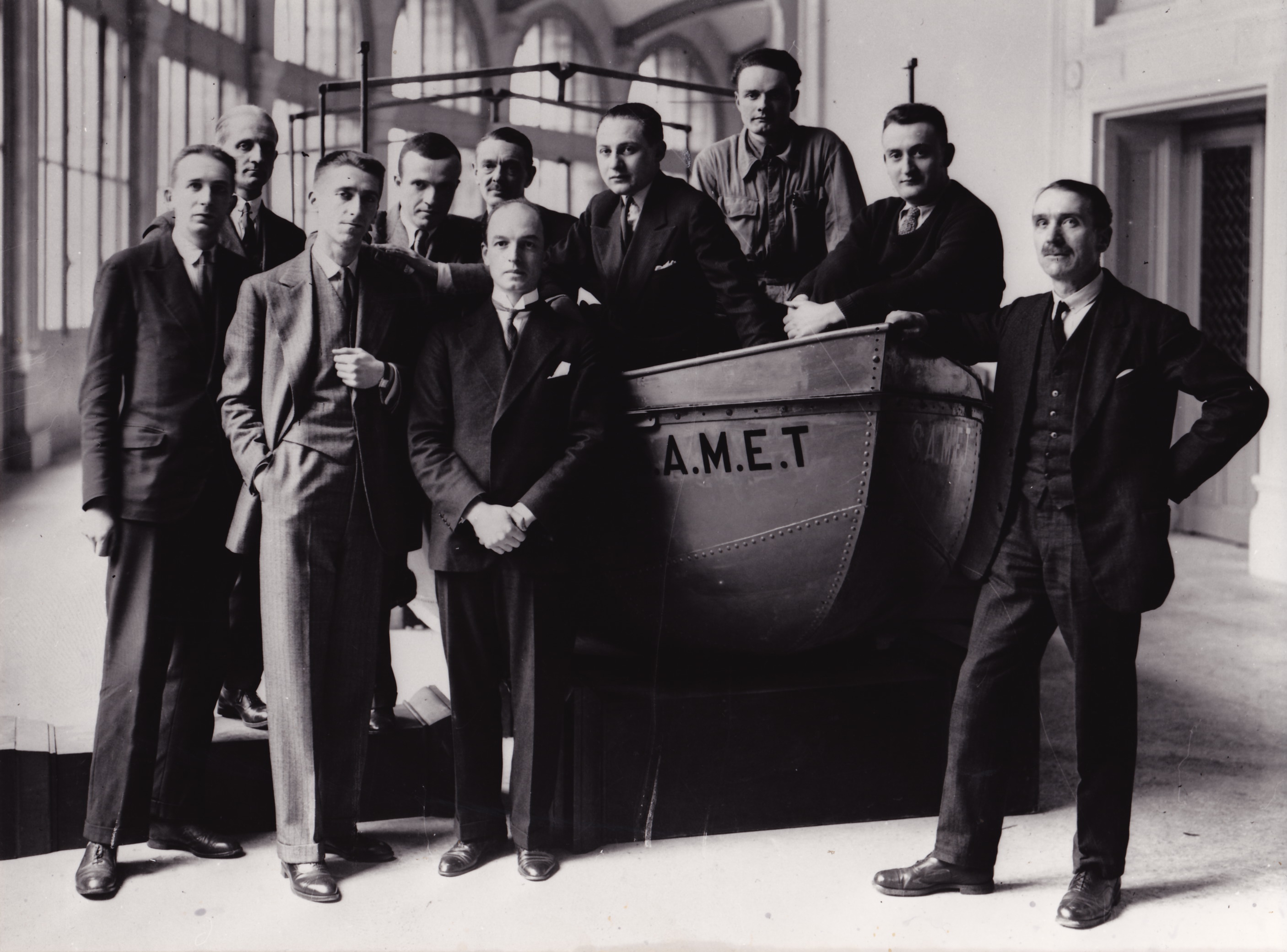|
Jean Rouch
Jean Rouch (; 31 May 1917 – 18 February 2004) was a French filmmaker and anthropologist. He is considered one of the founders of cinéma vérité in France. Rouch's practice as a filmmaker, for over 60 years in Africa, was characterized by the idea of ''shared anthropology''. Influenced by his discovery of surrealism in his early twenties, many of his films blur the line between fiction and documentary, creating a new style: ethnofiction. The French New Wave filmmakers hailed Rouch as one of their own. Commenting on Rouch's work as someone "in charge of research for the Musée de l'Homme" in Paris, Godard said, “Is there a better definition for a filmmaker?". Biography Rouch began his long association with Nigerien subjects in 1941, when he arrived in Niamey as a French colonial hydrology engineer to supervise a construction project in Niger. There he met Damouré Zika, the son of a Songhai traditional healer and fisherman, near the town of Ayorou, on the Niger River. ... [...More Info...] [...Related Items...] OR: [Wikipedia] [Google] [Baidu] |
Paris
Paris () is the capital and most populous city of France, with an estimated population of 2,165,423 residents in 2019 in an area of more than 105 km² (41 sq mi), making it the 30th most densely populated city in the world in 2020. Since the 17th century, Paris has been one of the world's major centres of finance, diplomacy, commerce, fashion, gastronomy, and science. For its leading role in the arts and sciences, as well as its very early system of street lighting, in the 19th century it became known as "the City of Light". Like London, prior to the Second World War, it was also sometimes called the capital of the world. The City of Paris is the centre of the Île-de-France region, or Paris Region, with an estimated population of 12,262,544 in 2019, or about 19% of the population of France, making the region France's primate city. The Paris Region had a GDP of €739 billion ($743 billion) in 2019, which is the highest in Europe. According to the Economist Intelli ... [...More Info...] [...Related Items...] OR: [Wikipedia] [Google] [Baidu] |
Songhai Proper
The Songhai proper (Songhay, Sangwai or Sonrai) are an ethnic group in the northwestern corner of Niger's Tillaberi Region, an area historically known in the country as '' Songhai''. They are a subgroup of the broader Songhai group. Even though the Songhais have so much in common with the Zarma, to the extent that some Songhais may refer to themselves and their dialect as "Zarma," both see themselves as two distinct branches of the same ethnicity. The Songhai originally were the descendants and partisans of the Sonni dynasty that retreated to this area of present Niger after the coup d'état of 1493 and that of the Askia dynasty that also moved later to this same region after the invasion of the Songhai Empire by the Saadi dynasty of Morocco in 1591. These two historical events that resulted in the mass exodus of the Songhai emptied Gao and Timbuktu of their Songhai nobles, who find themselves dispersed today in the above-mentioned region of Southwestern Niger. Aristocracy ... [...More Info...] [...Related Items...] OR: [Wikipedia] [Google] [Baidu] |
Jaguar (1967 Film)
''Jaguar'' is a 1967 French ethnographic film directed by Jean Rouch. Set in the 1950s, it follows three men from Niger, Damouré, Lam, and Illo, who travel to the Gold Coast (now Ghana) for work. Much of the dialogue and narration in the film is provided by the three men themselves as they comment on their past experiences on their journey. After being exhibited at the Venice Film Festival in 1967, the movie finally had a general though limited release in 1971. It was well-received by French audiences and critics, and has since received considerable academic attention due to the film's unconventional framing and its implicit rebuke to chauvinist, one-dimensional European portrayals of life in Africa. Plot The film follows three men from Niger: Lam, a cowherd, Illo, a fisherman, and Damouré Zika, an educated dandy. After a brief introduction detailing their lives in Niger, they visit a fortune teller, who warns them that the journey will be difficult, but that things will be ... [...More Info...] [...Related Items...] OR: [Wikipedia] [Google] [Baidu] |
Nigerien Cinema
The Cinema of Niger began in the 1940s with the ethnographical documentary of French director Jean Rouch, before growing to become one of the most active national film cultures in Francophone Africa in the 1960s-70s with the work of filmmakers such as Oumarou Ganda, Moustapha Alassane and Gatta Abdourahamne.Jean Rouch (1917–2004) , '' L'Homme'', 171–172 July–December 2004, Online 24 mars 2005. Consulted 7 April 2009 The industry has slowed somewhat since the 1980s, though films continue to be made in the country, with notable directors of recent decades including Mahamane Bakabe, [...More Info...] [...Related Items...] OR: [Wikipedia] [Google] [Baidu] |
Pirogue
A pirogue ( or ), also called a piragua or piraga, is any of various small boats, particularly dugouts and native canoes. The word is French and is derived from Spanish , which comes from the Carib '. Description The term 'pirogue' does not refer to a specific kind of boat, but is a generic term for small native boats in regions once colonized by France and Spain, particularly dugouts made from a single log. In French West Africa, the term refers to handcrafted banana-shaped boats used by traditional fishermen. In Madagascar, it also includes the more elaborate Austronesian ''lakana'' outrigger canoe. Pirogues are usually propelled by paddles that have one blade (as opposed to a kayak paddle, which has two). It can also be punted with a push pole in shallow water. Small sails are built by local fishermen, and they can also be employed. There are two types of sails with differences in their shapes: the square one is used mainly for fishing near the coast and is only useful ... [...More Info...] [...Related Items...] OR: [Wikipedia] [Google] [Baidu] |
Agence France-Presse
Agence France-Presse (AFP) is a French international news agency headquartered in Paris, France. Founded in 1835 as Havas, it is the world's oldest news agency. AFP has regional headquarters in Nicosia, Montevideo, Hong Kong and Washington, D.C., and news bureaus in 151 countries in 201 locations. AFP transmits stories, videos, photos and graphics in French, English, Arabic, Portuguese, Spanish, and German. History Agence France-Presse has its origins in the Agence Havas, founded in 1835 in Paris by Charles-Louis Havas, making it the world's oldest news service. The agency pioneered the collection and dissemination of news as a commodity, and had established itself as a fully global concern by the late 19th century. Two Havas employees, Paul Julius Reuter and Bernhard Wolff, set up their own news agencies in London and Berlin respectively. In 1940, when German forces occupied France during World War II, the news agency was taken over by the authorities and renamed "Office fr ... [...More Info...] [...Related Items...] OR: [Wikipedia] [Google] [Baidu] |
French Resistance
The French Resistance (french: La Résistance) was a collection of organisations that fought the German occupation of France during World War II, Nazi occupation of France and the Collaborationism, collaborationist Vichy France, Vichy régime during the World War II, Second World War. Resistance Clandestine cell system, cells were small groups of armed men and women (called the Maquis (World War II), Maquis in rural areas) who, in addition to their guerrilla warfare activities, were also publishers of underground newspapers, providers of first-hand intelligence information, and maintainers of escape networks that helped Allies of World War II, Allied soldiers and airmen trapped behind enemy lines. The Resistance's men and women came from all economic levels and political leanings of French society, including émigrés, academics, students, Aristocratic family, aristocrats, conservative Catholic Church, Roman Catholics (including priests and Yvonne Beauvais, nuns), Protestantis ... [...More Info...] [...Related Items...] OR: [Wikipedia] [Google] [Baidu] |
Marcel Griaule
Marcel Griaule (16 May 1898 – 23 February 1956) was a French author and anthropologist known for his studies of the Dogon people of West Africa, and for pioneering ethnographic field studies in France. He worked together with Germaine Dieterlen and Jean Rouch on African subjects. His publications number over 170 books and articles for scholarly journals. Biography Born in Aisy-sur-Armançon, Griaule received a good education and was preparing to become an engineer and enrolled at the prestigious Lycée Louis-le-Grand when in 1917 at the end of World War I he volunteered to become a pilot in the French Air Force. In 1920 he returned to university, where he attended the lectures of Marcel Mauss and Marcel Cohen. Intrigued by anthropology, he gave up plans for a technical career. In 1927 he received a degree from the École Nationale de Langues Orientales, where he concentrated on Amharic and Ge'ez. Between 1928 and 1933 Griaule participated in two large-scale ethnograp ... [...More Info...] [...Related Items...] OR: [Wikipedia] [Google] [Baidu] |
Zarma People
The Zarma people are an ethnic group predominantly found in westernmost Niger. They are also found in significant numbers in the adjacent areas of Nigeria and Benin, along with smaller numbers in Burkina Faso, Ivory Coast, Ghana, Togo, and Sudan.Zarma people Encyclopædia Britannica In Niger, the Zarma are often considered by outsiders to be of the same ethnicity as the neighboring , although the two groups claim differences, having different histories and speaking different dialects. They are sometimes lumped together as the Zarma-Songhay or Songhay-Zarma. The Zarma people are predominantly Muslims o ... [...More Info...] [...Related Items...] OR: [Wikipedia] [Google] [Baidu] |
Spirit Possession
Spirit possession is an unusual or altered state of consciousness and associated behaviors purportedly caused by the control of a human body by spirits, ghosts, demons, or gods. The concept of spirit possession exists in many cultures and religions, including Buddhism, Christianity,Mark 5:9, Luke 8:30 Haitian Vodou, Hinduism, Islam, Wicca, and Southeast Asian, African, and Native American traditions. Depending on the cultural context in which it is found, possession may be considered voluntary or involuntary and may be considered to have beneficial or detrimental effects on the host. In a 1969 study funded by the National Institute of Mental Health, spirit possession beliefs were found to exist in 74% of a sample of 488 societies in all parts of the world, with the highest numbers of believing societies in Pacific cultures and the lowest incidence among Native Americans of both North and South America. As Pentecostal and Charismatic Christian churches move into both Africa ... [...More Info...] [...Related Items...] OR: [Wikipedia] [Google] [Baidu] |
The Guardian
''The Guardian'' is a British daily newspaper. It was founded in 1821 as ''The Manchester Guardian'', and changed its name in 1959. Along with its sister papers ''The Observer'' and ''The Guardian Weekly'', ''The Guardian'' is part of the Guardian Media Group, owned by the Scott Trust. The trust was created in 1936 to "secure the financial and editorial independence of ''The Guardian'' in perpetuity and to safeguard the journalistic freedom and liberal values of ''The Guardian'' free from commercial or political interference". The trust was converted into a limited company in 2008, with a constitution written so as to maintain for ''The Guardian'' the same protections as were built into the structure of the Scott Trust by its creators. Profits are reinvested in journalism rather than distributed to owners or shareholders. It is considered a newspaper of record in the UK. The editor-in-chief Katharine Viner succeeded Alan Rusbridger in 2015. Since 2018, the paper's main news ... [...More Info...] [...Related Items...] OR: [Wikipedia] [Google] [Baidu] |




